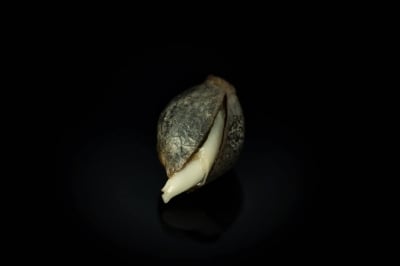.

RQS Interviews — Burning Cannabis Questions With David Bienenstock
Hello, my name is David Bienenstock. I’m a veteran cannabis journalist and the author of “How to Smoke Pot (Properly): A Highbrow Guide to Getting High”. It is an irreverent look at the history, science, culture, and customs of cannabis. I’m also co-host and co-creator of the podcast “Great Moments in Weed History”.
If there's one thing David Bienenstock's work proves, it's just how important cannabis has been throughout human history. Read along as we interview the prolific and respected journalist and podcast host on all things cannabis.
|
(Listen to it also in Spotify and Apple Podcast) |
|---|
| Listen to it also in Spotify and Apple Podcast |
1. What role does cannabis play in US and European culture?
I think the biggest thing is actually a misconception that a lot of people have, which is that cannabis culture maybe started in the 1960s, associated with hippies. And, of course, hippies smoked a lot of weed per capita. But cannabis culture as a global culture goes back thousands of years. And we have to look to the places where it originated; it could be China, India, Nepal—we know that if we trace the history of the plant, all the way back, there's a common ancestor. Despite how many different varieties of cannabis you can find right now, all these different hybrids, it really goes back to one plant that spread and evolved along with humans, through trade routes.
And, of course, I have met a person, and people—individuals—who don't love cannabis or don't enjoy cannabis. But I've never met a whole group of people or a whole culture who had access to cannabis and didn't really like it as a medicine, as a way to get high, as something to share as a food, and, of course, all the industrial uses. So I think the biggest thing to understand about cannabis in the cultures of the United States and Europe is that it's actually part of this really long tradition.
Of course, sort of the most interesting thing happening right now is unravelling prohibition, ending this terrible, racist, and oppressive system of arresting people for a beneficial plant. And that comes with another misconception that people often have, which is this sort of mindset that weed has always been illegal, or weed has always been prohibited, or the powers that be of society have always been against it. And that's also not true.
Prohibition is relatively recent, when you look at thousands of years of history. So we need to start to look at the system of prohibition as the anomaly, as something that went terribly wrong. And as we change the laws and allow people more cannabis freedom, and, of course, stop arresting people and embrace the benefits of the plant, we should also look at our societies, particularly in the United States and Europe—particularly, particularly in the United States—because that country's government was so central to spreading prohibition all over the world. How did that happen? Why did that happen? What madness would lead to arresting hundreds of thousands of people, millions of people all over the world, for a beneficial plant?
So I think that as we look to the excitement of legalization and ending these arrests, we have to also ask ourselves those questions, and we have to remember— I'm talking to you in California. I'm about to light up a joint. It's completely legal. I grew right in my backgarden, I can go to a store. But we have to remember how much of the world still lives under prohibition, and not ever stop working toward a world where everyone is free.
2. What do you think about celebrities that smoke pot? Do you think they're exempt from the stigma surrounding weed, or are we all subject to negative attitudes toward cannabis?
In my mind, I rank celebrities in sort of two categories; I think, certainly, culturally, simply the act of embracing cannabis and talking about the positive aspects of it is a form of activism. So people who have done that, who have identified with the plant, certainly going further back, it was more of a risk.
I worked at High Times Magazine, 20 years ago. I don't have anything to do with them now. But it was always hard to get people to do an interview with us or to take a picture; even just holding a joint, people felt a risk of not just arrest, but maybe loss of professional status—you might lose a job, you might lose an endorsement. So I do, think that culture is very, very important in changing the law. So I think that's a form of activism. But then I hold a much higher esteem for people who actually got involved in trying to change the laws and use their celebrity. Now you see a lot of people starting a company, and they, of course, are starting a company because they want to make money. And yeah, I've never really smoked celebrity weed that was good.
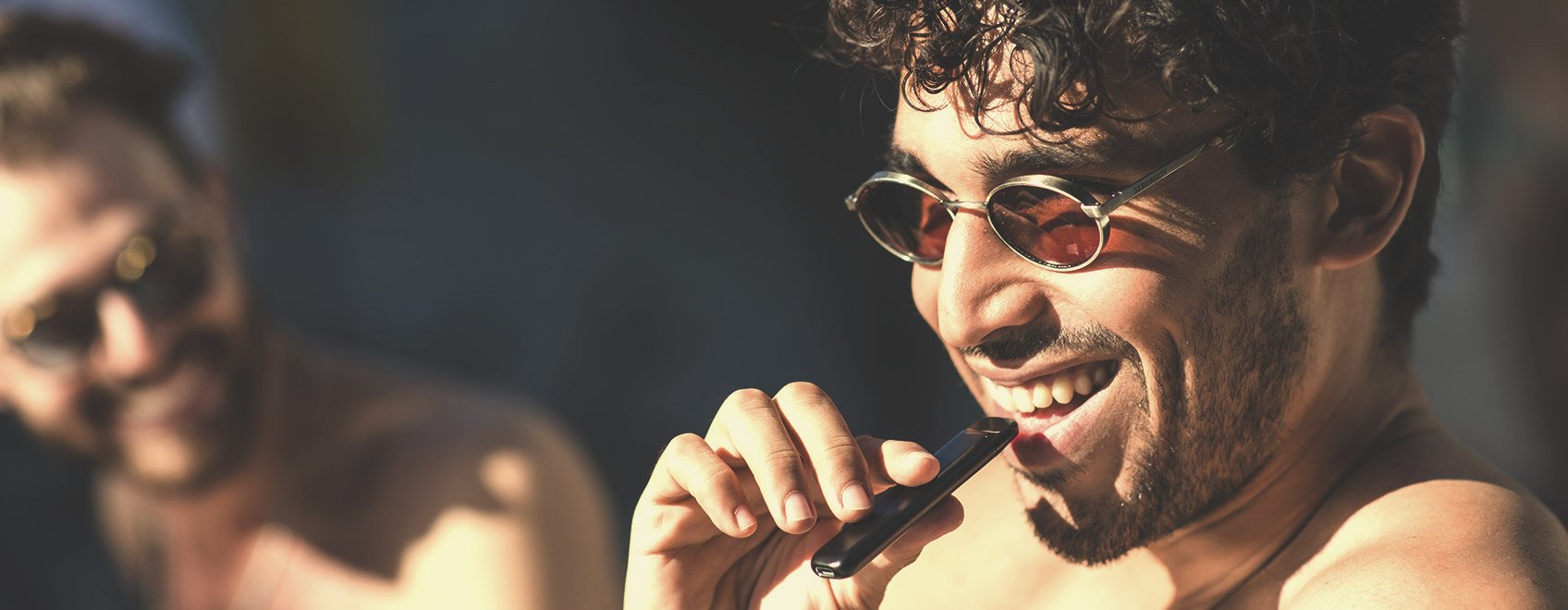
To me, the celebrities of weed are the people who grow it really well, or the people who can breed a new variety of cannabis. But I was just involved in a project where we made a bunch of videos for Willie Nelson's birthday. With “Great Moments in Weed History”, my podcast, we were, hired by Willie Nelson's people to make some videos celebrating his 60 years smoking weed, and also somebody who is always talking about the benefits of cannabis, somebody who is always pushing back against arresting people, and somebody who, when he did start his own company, sources all his cannabis from small farmers and people who have been doing it for years or decades.
So I think that's a great example of using your notoriety and speaking directly to people. And I think that that's hugely beneficial. A lot of people consciously, or maybe even subconsciously, have had their attitudes about cannabis made more positive in that way.
3. If cannabis started with a “hippie” philosophy, why do you think it is now becoming such a major industry?
Well, we live in a system called capitalism, and that system is one I guess—spoiler alert—is going to favor people with a lot of capital. And it is going to incentivise people toward the acquisition of more capital. So in the underground system, during prohibition, cannabis, of course, was bought and sold, it was produced and distributed, it was subject to supply and demand—all of these economic principles applied. But you didn't have the sort of mechanics of free market capitalism as practised in the United States and most of Europe.
"I think the best thing that people can do is, anytime you are buying cannabis, whether it's from a store or from a dealer, depending on where you live, just try to make decisions that will create the world you want."
Now, you see people coming into cannabis, who, frankly, did nothing to help end prohibition, who have no real love for the plant, who have no real love or understanding of the culture, and they see an opportunity to make a lot of money. In some ways, they should be disadvantaged because they don't have a lot of knowledge about the plant, they don't have a connection to the culture. But because we're in this system called capitalism, simply already being rich gives you a huge advantage in trying to come into this industry as it's forming. And as it's growing, you can use the capital you already have to throw a lot of weight around and to create market share for yourself and basically push out a lot of people who have been— here in Northern California, where I live, we have third, maybe even fourth-generation cannabis growers up in the hills.
If you go to places like Morocco, you have cannabis and hashish production, cultures that go back, as I said, thousands of years in a direct line, in the Rif mountains of Morocco, in places in India and Nepal. But that long tradition is coming up against these capitalistic enterprises, and it is a real struggle. I think that when we talk about cannabis culture, that's where we have the advantage; we have a very strong global culture that is used to pushing back against, frankly, all kinds of bullshit.
But when we look at the economics around it, it is going to be this period of a sort of land rush mentality. And we're gonna see people throw a lot of money at this to try to push their way in. And I think the best thing that people can do is, anytime you are buying cannabis, whether it's from a store or from a dealer, depending on where you live, just try to make decisions that will create the world you want. Buy cannabis from the farmers that you want to succeed. And if you want there to be a bunch of shitty corporate cannabis controlled by the same people who run banks and oil wells and all of that, then buy shitty corporate cannabis. And there will be more of it.
4. Do people care about where the cannabis they’re consuming comes from?
Well, I think if your choices are between nothing and something, then people tend to choose something, and I put myself in that group as well. But that's not the choice that I'm asking people to make.
If you live in a place where cannabis is very difficult to find and you have very few options, or it's hard to feel safe acquiring cannabis, absolutely, just get some cannabis—you deserve it. Every human deserves access to cannabis, and no one is asking you to change that. But if you are lucky enough to live in a place where you have options, and you have the ability to understand where your cannabis comes from, then I think people will make really good choices.
Particularly here in California, a lot of the sun-grown cannabis that comes from beautiful farms comes from people who love the plant. It's no more expensive than indoor corporate, shitty cannabis. It's just not. And so it really is an educational opportunity. And that has happened. I want to say—I know this is sort of an international show—I want to give people hope that, we do see people every day wanting to know more about where their cannabis comes from, and making good choices. And one of the things with prohibition lifting is it's easier to see that, and it's easier to put a face to farmers.
When I was first beginning to write about weed, it was frustrating in a way that I would have these wonderful experiences going to people's farms, but I couldn't write about them. Often, I couldn't write about the people, I couldn't write about their life journey. I couldn't write about how they got to where they were, why they grew the plants that they did, everyone was—rightly—very worried about being arrested and putting trust in me as a journalist to kind of tell their story without revealing their identity. And now, at least in California, and a lot of places in the US and around the world, that's changing, and that's a huge educational opportunity.
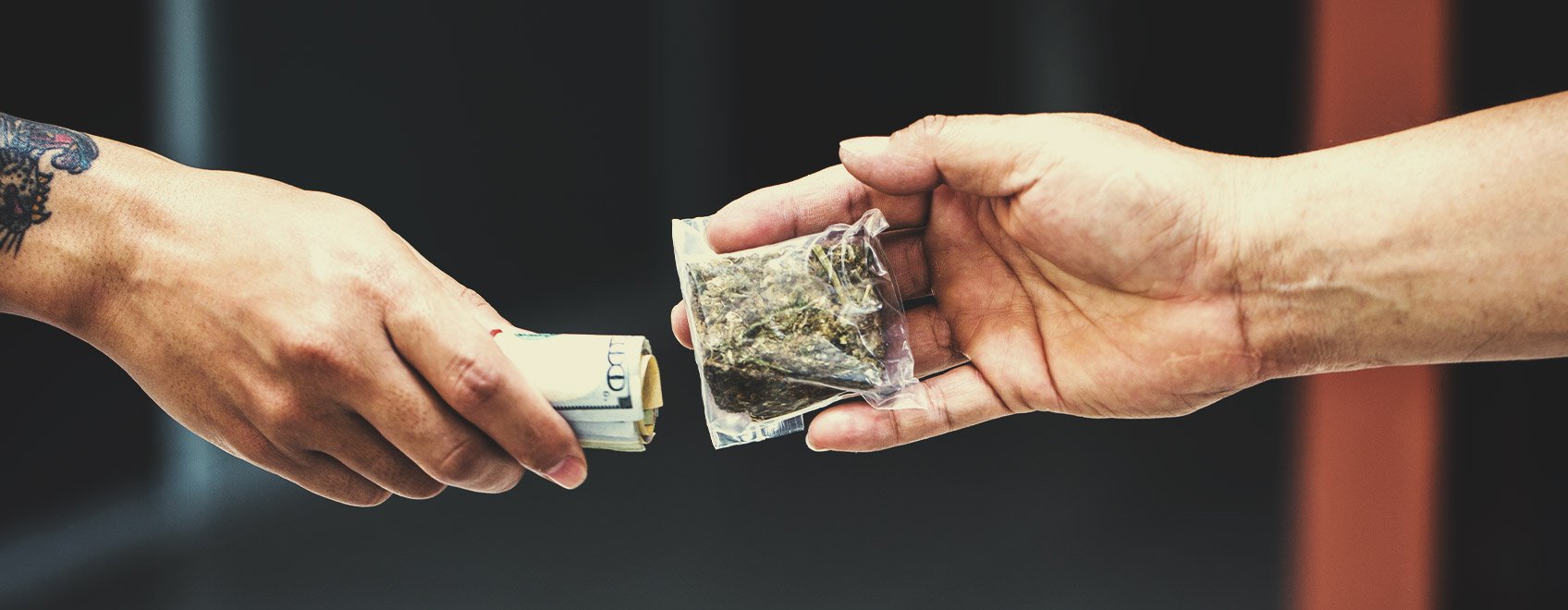
And I can say the early evidence is that when people have that education, and when people have that choice, they are, some people are just, of course, going to buy whatever they deem the least expensive or the most potent for the money. And to some extent, that's people's right, and I'm not talking to people who don't care about cannabis and where it comes from. But if you do, that's kind of what I'd say; you know, the best thing about legalization is not getting arrested. The second best thing about legalization is being able to form this deeper connection with where your cannabis comes from.
And if you live somewhere where you are allowed to grow your own, that is sort of the ideal, and something that, wherever you live—if you're living in a place right now where cannabis is not legal, but the process of legalization is happening—get involved now and push for the things you want, like the ability to grow, say, six plants at home, and a set of rules that favor smaller growers, that favor people from your community who have been involved in this, and that doesn't give all the advantages to people with a lot of money who are just showing up now to make more money.
If you're waiting until the laws change, that's too late to affect the laws. And I know that there are a lot of people who, maybe you're involved in something that's outside of the law now and by speaking up, you are worried about drawing attention to yourself. That's also very valid. If you feel that being an outspoken activist is going to imperil you or your family, that's a very real consideration. But for everyone else, that makes it more imperative for us to speak up, and for us to push not just to end prohibition and end arrests, but to create a new system that is reflective of our community values, and not reflective of how we can make rich people richer.
5. If you had to make a decision, what would you choose to consume: THC or CBD strains?
I choose THC. But that's because I personally like to get high, and also because THC is very, very soothing. Another misconception people have, and that frankly, some people who sell CBD have been fostering, is “Oh, THC gets you high and CBD is medicine”. That is not true. THC has strong and proven medicinal properties as well as CBD.
So, what ended up happening is when there was less understanding of CBD, a lot of cannabis breeders unwittingly bred plants that were very, very high in THC, which we knew about and everybody likes. But at the same time, they were breeding CBD out of the cannabis gene pool because CBD actually tempers the high of THC. That's one of the reasons why when I go to a store here, I like to get edibles that are a one to one ratio of THC and CBD. I find them very relaxing, very chill. I don't have to worry about sort of getting too high, and it's perfect for me. But we actually had to find the plants.
This goes back about 10 years ago when lab testing first started in California, when they were sending a lot of samples of cannabis to an analytic lab to find out, one, if there were no molds or pesticides, and also to test for potency. And what you saw was plants with 20–25% THC and .01% CBD. So to bring CBD back to the gene pool, they flagged or identified those very, very rare samples that were coming in that had even 2 or 3% CBD. A lot of breeding work went into creating new strains that are high in CBD. This was also happening in Spain at the same time. So, as a culture and a community, we've actually brought CBD strains back. And now, of course, that's a way for a lot of people to access the medicinal benefits of cannabis who still live in a place where high-THC plants are prohibited.
But ideally, everyone would have access to every form of the plant and every kind of cannabinoid. And don't let anybody tell you that access to CBD solves the problem for people who want to use cannabis medicinally, because that is not the highest form of the plant. That is not the most effective medicine for everyone. It's very individual, and you need to have access to everything to find out what's gonna work best for you.
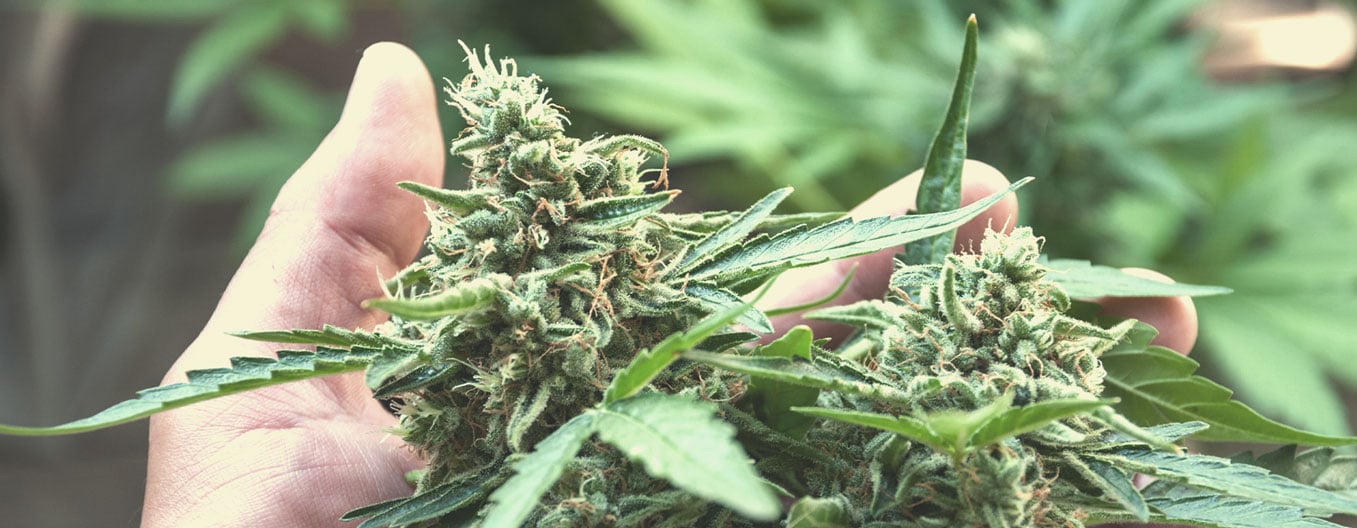
6. Tell us a funny high anecdote that happened among friends.
Oh, man, well, I've been writing about cannabis for about 20 years. And I've been hosting the podcast “Great Moments in Weed History” for almost four years now with my partner on that show, Abdullah Saeed, who you may know from the Bong Appétit TV show, or he was on High Maintenance on HBO.
So we've been doing the show long enough that we've done multiple 420 specials to put out on April 20. On one of them we did the history of 420 itself, which started with a few friends in California and really spread almost like a meme before the internet. This goes back to the 1970s. But we did an episode two years ago where we kind of told all our own great moments in weed history. So I would say I definitely have no shortage of stories about weed, and that would be a great place to access them.
7. Give us a pro tip about smoking pot properly that we don’t know!
I don't know, but I think the biggest thing if you're new to cannabis, in terms of consumption, is to just start slow—you really can't go wrong if you just start with low doses and slowly, incrementally raise the dose until you find how you want to feel. And that's very, very individual.
Take the time to learn as much as you can about the plant, in terms of ingesting it. I think part of being involved in cannabis culture is to educate yourself. I just find this plant and this culture sort of endlessly fascinating. But that all goes back to it being very beneficial for me personally. And over the long time I've spent reporting on cannabis or investigating cannabis history, I just get more and more fascinated by it. And I think it's a beautiful community of people. So you can experience this plant however you want to; if you need it medicinally and it's going to help you as a medicine, but you're not that interested in it as a culture, that's great.
It's an incredible medicine; it is often far more effective than pharmaceuticals for a wide variety of ailments, and if you want to understand the science of that, you can start to look at the endocannabinoid system in our bodies. You can look at research papers and you can understand why you're getting those benefits. Or, you can simply get those benefits. That's really up to you. Same thing with the sort of culture around cannabis; if you want to smoke by yourself because you get benefits from it, but you don't want to share that experience with other people, that's fine. But if you look beyond that, you will see that there are many people from all walks of life, all over the planet, who share a love for this plant, and it is a great way to connect with people.
8. Do you think society would change if cannabis were legalized everywhere?
Yes. I think we've already seen that. And I understand your question beyond the obvious of “we're no longer arresting people”. And, aside from removing all the bad parts of prohibition, I do think it makes for a better society. I'm somebody who—I enjoy having a drink now and then. But a lot of people struggle with alcohol. And our society, at least in the US and in the UK, is very, very based around alcohol and socialisation.
Every social activity in our culture has alcohol imbued into it. And that creates a lot of problems. It doesn't mean we should ban alcohol, as was tried in the United States. It failed for all the reasons that cannabis prohibition is a failure. But simply giving people another option to move away from problematic alcohol use is huge. I think there's also just an inherent kindness and compassion to the cannabis experience and to cannabis culture that is sorely lacking in mainstream culture, and that we need to bring with us along with legalization.
I like to say cannabis is not the cure for being an asshole, but it's a good place to start. And I think that works on the individual level, and on the macro level. When we look at some of these bigger problems in society, a lot of them are mind problems. A lot of them are consciousness problems. A lot of them are about being centerd in greed and competition, and envy and distemper. And if we can move to something that really engenders feelings of connection and compassion, that is a huge societal shift.
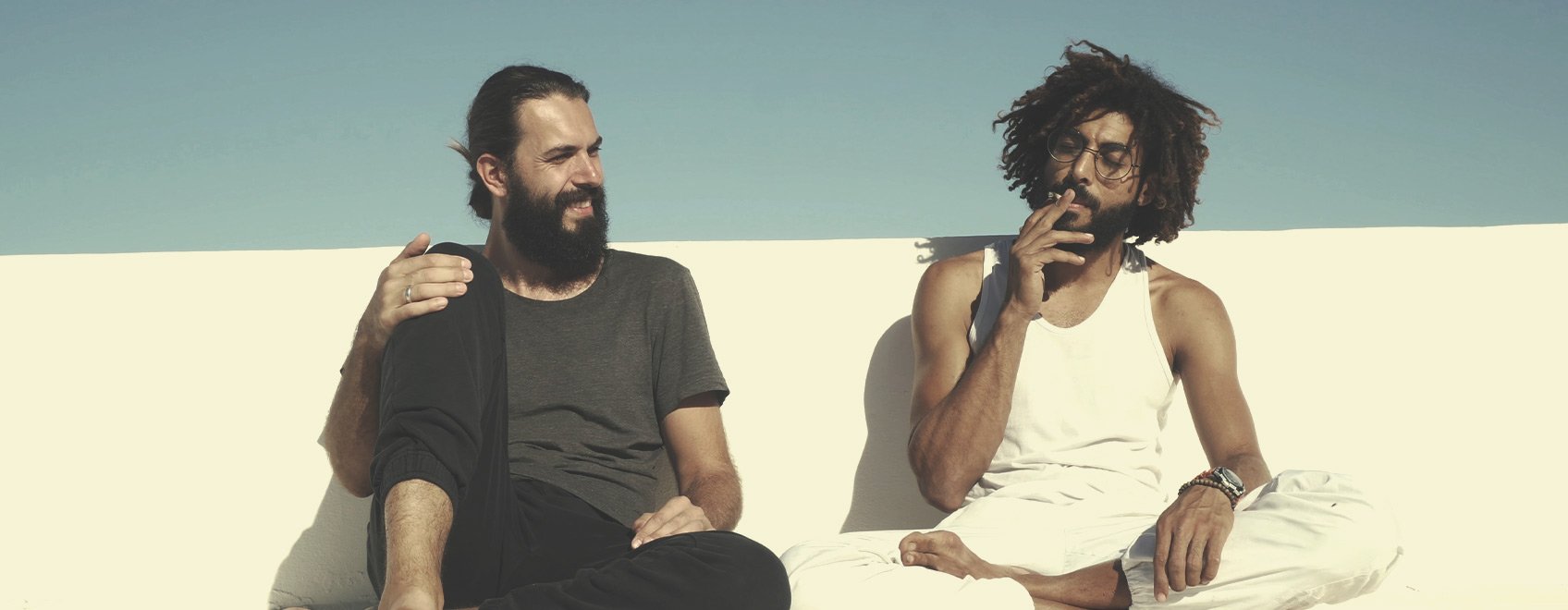
9. Would you put a minimum age to start consuming cannabis?
Well, the first answer is certainly not for medicinal cannabis use. We have seen in the last five years how profound pediatric epilepsy and other seizure disorders can respond to cannabis. I have personally reported on and met many families with children, small children who were having hundreds of seizures a month and tried every pharmaceutical, tried surgeries, tried every form of therapy that was ineffective. And small amounts of concentrated cannabis could stop those seizures almost immediately.
And with the long-term, great results we're now seeing in the UK—of course, there's GW Pharmaceuticals, which has created Epidiolex—but they didn't create cannabis and they didn't even create the understanding that this works. This was people trying this often out of a kind of desperation, but also because people who work with this plant have known this is going to be the most effective, least harmful medicine. And not just to say that it’s okay, but to make sure people understand that it's an option, and should be, frankly, tried before a lot of potentially much more harmful pharmaceuticals.
When it comes to getting high, I would say this; there is evidence that younger developing brains can have some ill effects from cannabis. I can also say that like, as a younger person, cannabis was very helpful for me. So I don't want to judge people. I think the law will be what the law is. I don't see the law being anywhere below 18. I think, personally, 18 is probably about right. For the law, for people to make their own personal decisions, that's up to them. And, of course, we have to have access for children who need it for medicinal purposes.
"I think there's also just an inherent kindness and compassion to the cannabis experience and to cannabis culture that is sorely lacking in mainstream culture, and that we need to bring with us along with legalization."
10. How can we avoid a bad cannabis high?
Don’t smoke too much. Be very, very careful with edibles. When you're smoking or vaporizing, you can kind of—you feel it very quickly, the effects. And if you're pacing yourself, you can make sure that you take a few puffs, see how you feel; take a few more puffs. Once you eat that brownie, though, it's inside. And it can take a long time to take effect. It can legitimately take an hour, or if you just ate a whole meal, it could take 90 minutes for you to start feeling the effects.
And then, of course, the classic mistake we've all made, and I've certainly made, is, “I don't feel anything, it's been 30 minutes, I'm going to eat a second”. And unfortunately, a lot of people do have an unpleasant experience around that, and it might make them feel that cannabis is not for them.
And I always say like, when there was a lot more public speaking, I'd speak before a crowd and I'd say, “Oh, how many people here have had an overdose on alcohol”. And, of course, people think, “Oh, an alcohol overdose means you die”. An overdose is having too much of anything to the point where you wish you didn't have that much. So if you've ever been in a bathroom vomiting because you drank too much alcohol, which is a such a common experience we don't even think about it, you had a drug overdose—the drug was alcohol, it made you vomit, you might have had to go to the hospital. And, of course, people die from that.
And yet, we all go on and on and on drinking, and you might hopefully learn the lesson from that to manage your dosage. Yeah, nobody who drinks a glass of wine or a half a glass of wine, at least no adult in good health, becomes sick from it. It's about dosage control. And the good thing with cannabis is you're not going to have those dangerous effects, you're not going to end up like somebody who ingested too much alcohol or too much of an opioid, as two examples.
But that said, the best way to avoid those bad experiences is to consider set and setting. If you are in a place that is producing anxiety for you, you're around people who are producing anxiety for you—cannabis can be something that helps relieve anxiety, but that's very dependent on dosage—write one or two sentences setting where you're at, who you're around, and just set an intention for yourself. Why am I consuming cannabis? Why am I consuming cannabis right now? What do I want to get from it? And simply going through that process.
This is for people who are, new to smoking. I smoke a lot of weed. I don't go through a long process every time. But if you're new to cannabis, or if you've had those experiences and you want people to see the benefits, but also maybe have had bad experiences, really think about dosage, really think about setting. And you can manage that.






























